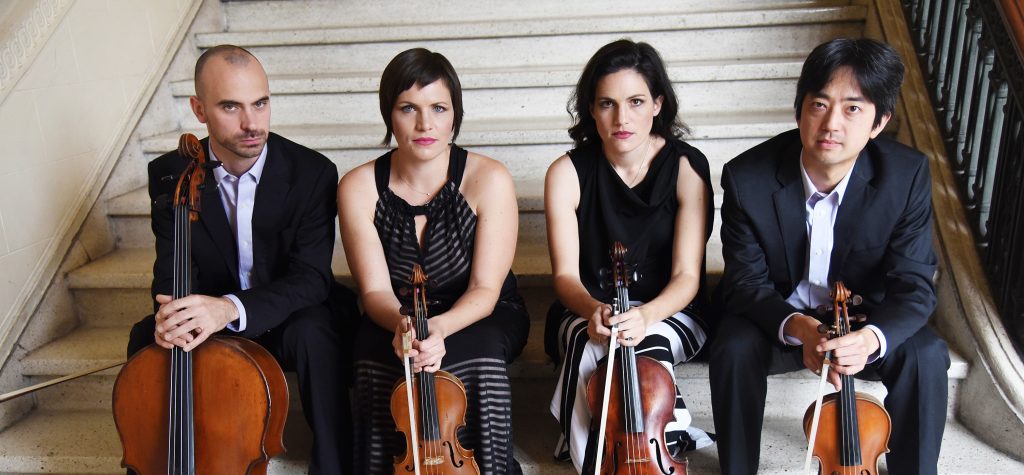by Jarrett Hoffman

Metamorphosis brings together two fascinating works with unconventional structures. Beethoven’s Quartet in c-sharp, Op. 131, one of the most famous of his Late Quartets, is an epic collage of seven movements, the centerpiece of which is its own multi-part mosaic. And Ligeti’s early String Quartet No. 1 (“Métamorphoses nocturnes”) is a single movement composed of seventeen wildly contrasting sections.
This pairing presents an array of challenges to any quartet. For one, there’s the task of covering an emotional terrain that’s already hugely expansive in each work alone. Any mood you can dream up is in these pieces, and violinists Nelson Lee and Meg Freivogel, violist Liz Freivogel, and cellist Daniel McDonough conjure it all evocatively.
Often, the shifts in musical temper need to happen on a dime. In one moment during that big fourth movement of the Beethoven, just as the sound dies away to a wisp, an energetic Allegretto kicks down the door — expertly and daringly paced by the ensemble. Ligeti frequently has the players move from mournful to crazed in the snap of a finger, which can be disorienting or even scary for the listener, yet always striking.
Much is impressive about this recording, including the group’s technique during the formidable challenges of the Ligeti, and the vivid sound quality achieved by the production team of Judith Sherman, Frank Horger, Graham Duncan, and Jeanne Velonis.
Perhaps what stands out most is the Jupiter Quartet’s precise, unified, and spirited sense of ensemble. Their chemistry, like that of a top-notch cast of actors, is one of constant give-and-take of energy. In the racing fifth movement of the Beethoven, they seem to bounce off each other’s lines with the cleverness and delight of dueling comedians.
The “Métamorphoses nocturnes” is a profound piece of music in its own right. It’s also a compelling companion piece to Op. 131 for its stark, otherworldly contrast and its inventive structure. Still, that most daring and inventive quartet of Beethoven’s oeuvre is an impossible act to follow. It’s important to push back against narratives about the magnificence of the old greats, if only to test that they still hold up, but this piece really does. Hearing it in this performance, you can only shake your head in disbelief.
Published on ClevelandClassical.com July 7, 2020.
Click here for a printable copy of this article



